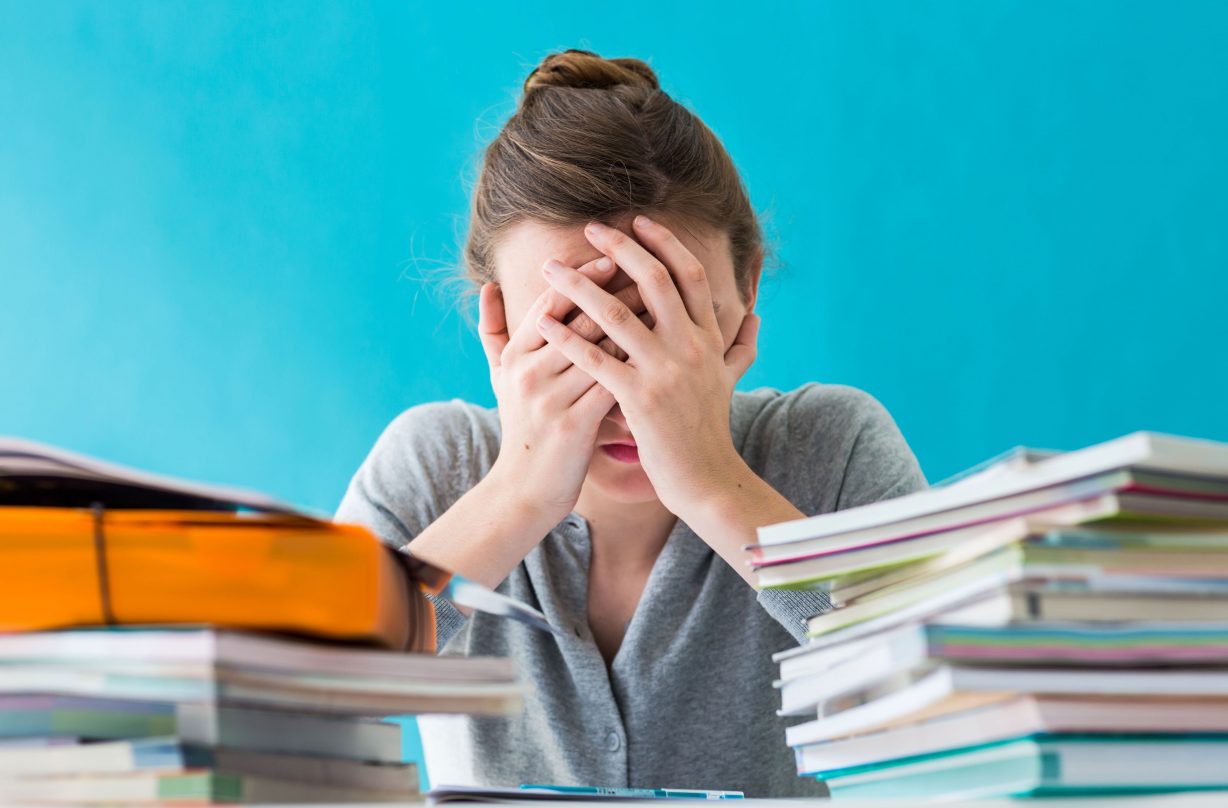Examination/ test anxiety is a type of performance anxiety, defined as a common and often normal stress reaction experienced before, during and sometimes after exams. The causes are fear of failure, family pressure, unpreparedness etc. A certain level of examination/test anxiety is necessary and normal response, as some degree of stress or tension is required to motivate, study for, complete exams, and perform well. Examination anxiety becomes a problem when it is intense, continues over time and impedes one’s ability to engage, attend and perform on the exam.
The Symptoms are
l Emotional -– fear, anger, feeling helpless, guilt, shame, disappointment.
l Physical- – nausea, racing heart, excessive sweating, shortness of breath, headache, dizziness, dry mouth, tense muscles, stomach problems, breathing difficulty.
lCognitive – racing thoughts, self-comparison to others, difficulty concentrating, blanking out, negative thoughts of past performances.
l Behavioural – Pacing or acting restless (shaking leg, increased activity), cramming, or staying up the night before in the hope it will help improve your grades or reduce anxiety, withdrawing from others or obsessing about study, procrastinating and avoiding cues relating to exams including study, making simple mistakes on revision tests despite knowing content, looking for reasons to avoid exams, panic attacks, anger, bouts of crying.
How to Cope
l Learn how to study efficiently. Your school may offer study-skills classes or other resources that can help you learn study techniques and test-taking strategies. Use ‘mind maps’ and other learning techniques. You›ll feel more relaxed if you systematically study and practice the material that will be on a test.
l Study early and in similar places. It’s much better to study a little bit over time than cramming your studying all at once. Also, spending your time studying in the same or similar places that you take your test can help you recall the information you need at test time.
l Establish a consistent pretest routine. Learn what works for you and follow the same steps each time you get ready to take a test. This will ease your stress level and help ensure that you›re well-prepared.
l Talk to your teacher, friends. Make sure you understand what’s going to be on each test and know how to prepare. In addition, let your teacher know that you feel anxious when you take tests. He or she may have suggestions to help you succeed. Do joint studies if possible, with your friends.
l Learn relaxation techniques. To help you stay calm and confident right before and during the test, perform relaxation techniques, such as deep breathing, relaxing your muscles one at a time, or closing your eyes and imagining a positive outcome.
l Don›t forget to eat and drink. Your brain needs fuel to function. Eat the day of the test and drink plenty of water. Avoid sugary drinks such as soda pop, which can cause your blood sugar to peak and then drop, or caffeinated beverages such as energy drinks or coffee, which can increase anxiety.
lGet some exercise. Regular exercise, and exercising on exam day, can release tension.
l Get plenty of sleep. Sleep is directly related to academic performance.
l Be aware of unhelpful thoughts and attitudes. Don’t fall into the ‘perfection trap’. Appreciate and reward yourself. Challenge and change your negative thoughts.
Dr Chavi Bhargava Sharma is the founder and CEO of Indic Center for Psychological Wellness and Holistic Health and Conversationalists-Talking Cures.













